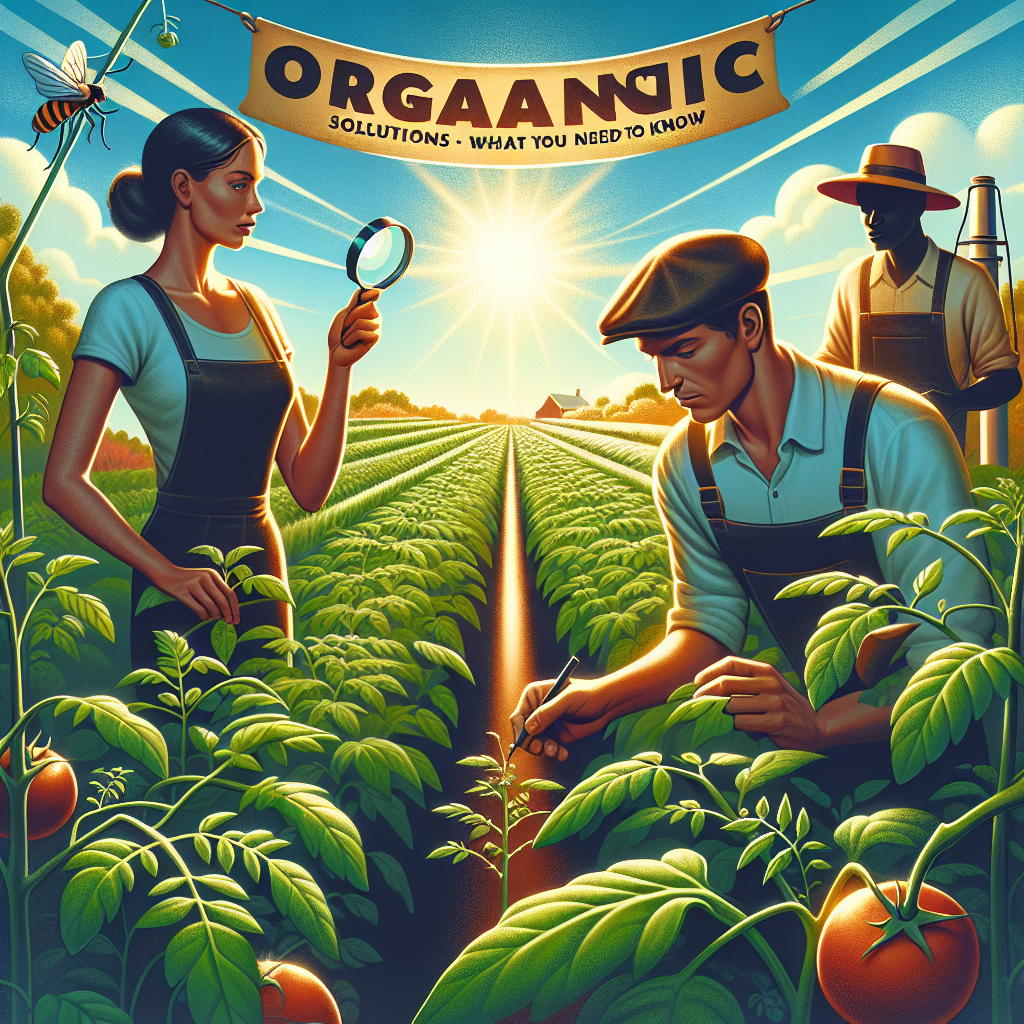Organic farming is a commitment to sustainable practices that prioritize the health of both the ecosystem and consumers. However, even the most dedicated organic farmers face the challenge of pest management. Pests can disrupt crops, lead to financial losses, and affect the quality of produce. Fortunately, there are effective and environmentally friendly pest control solutions available. In this article, we’ll explore several strategies that organic farmers can implement to safeguard their crops while adhering to organic practices.
Understanding the Importance of Pest Control in Organic Farming
Before diving into solutions, it’s essential to grasp why pest control is crucial in organic farming. Pests not only threaten plant health but can also carry diseases that affect entire crops. Organic produce, defined by its organic certification, strives to avoid synthetic chemicals. Thus, farmers must creatively adapt to pest challenges without compromising their organic values.
Integrated Pest Management (IPM)
What is IPM?
Integrated Pest Management (IPM) combines various pest control methods to minimize the impact of pests while protecting the environment. It is a proactive approach that involves regular monitoring and assessment of pest populations, allowing farmers to take action only when necessary.
How to Implement IPM
- Cultural Controls: Practice crop rotation, utilize resistant crop varieties, and promote healthy soil through organic fertilizers to enhance plant resilience against pests.
- Biological Controls: Introduce beneficial insects such as ladybugs to control aphids or nematodes to attack soil-dwelling pests. These natural predators can significantly reduce pest populations.
- Mechanical Controls: Utilize barriers like row covers, hand-picking, or traps to physically prevent pests from reaching crops. This approach is labor-intensive but effective for small-scale operations.
Organic Pesticides: Safe and Effective Solutions
What Are Organic Pesticides?
Organic pesticides are derived from natural sources, making them safe for the environment, beneficial insects, and humans. While they are potent against pests, they break down quickly and pose lesser residual risks.
Common Organic Pesticides to Consider
- Neem Oil: Derived from the seeds of the neem tree, this oil disrupts the growth and reproduction of pests like aphids and spider mites.
- Diatomaceous Earth: A powdery substance made from fossilized algae, diatomaceous earth is a mechanical pesticide that damages the exoskeletons of insects, ultimately dehydrating and killing them.
- Insecticidal Soap: Made from natural plant oils, insecticidal soaps work by suffocating soft-bodied insects like scale and aphids.
Companion Planting: Nature’s Ally in Pest Management
What is Companion Planting?
Companion planting involves growing specific plants together to promote growth and repel pests. This time-tested method not only enhances biodiversity but can also lessen pest pressures naturally.
Effective Companion Planting Combinations
- Marigolds and Tomatoes: Marigolds repel nematodes and aphids, protecting the tomato plants.
- Basil and Peppers: Basil not only enhances the flavor of peppers but also repels pests like thrips and whiteflies.
- Nasturtiums and Cabbages: Nasturtiums can attract aphids away from cabbage, drawing pests away from the crops you want to protect.
Physical Barriers: Keeping Pests at Bay
Types of Barriers
Physical barriers are an excellent deterrent against pests. They prevent insects from reaching your crops and can be as simple as:
- Row Covers: Lightweight fabrics that shield crops from insects while allowing light and water to penetrate.
- Netting: Fine mesh netting can protect fruits and vegetables from birds and larger pests.
- Mulches: Organic mulches not only enhance soil health but can also deter pests through scent and texture.
Educating Yourself and Your Staff
Knowledge is power in organic pest management. Regular training sessions on pest identification and management strategies can significantly enhance the effectiveness of your pest control efforts. Attend workshops, read articles, and connect with fellow organic farmers to share experiences and solutions.
Conclusion: Growing Sustainably with Smart Pest Management
Organic farming is not just about avoiding chemicals; it’s about working with nature to cultivate healthy, productive food systems. By employing Integrated Pest Management, utilizing organic pesticides, exploring companion planting, and implementing physical barriers, organic farmers can effectively manage pests without compromising their values.
Every pest challenge is unique, and finding the right combination of strategies that work for your specific situation may take time and experimentation. However, by embracing innovative pest control solutions, organic farmers can thrive and contribute to a healthier planet for future generations.
By prioritizing sustainable practices, you are not only protecting your crops but also preserving the integrity of organic farming for years to come!


